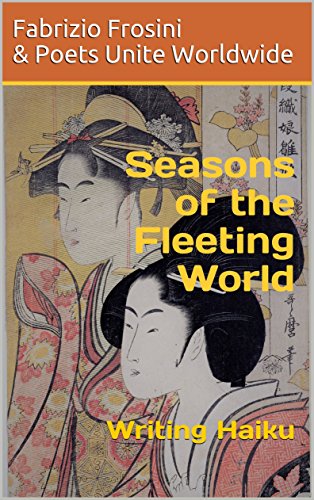Senryū (From Seasons Of The Fleeting World) N.64 Poem by Fabrizio Frosini
Senryū (From Seasons Of The Fleeting World) N.64
.
scoundrels!
some sense the sin more
some less, but alas…
-
Fabrizio Frosini, In ‘Seasons of the Fleeting World - Writing Haiku'

Much like Pam said below me, this senryu really invites the reader to ponder upon the significance of each and every word used. The most amazing thing here for me are the punctuations - the first line has an exclamation, the final an ellipsis, and the one in between has none. The beginning drags the reader in, asking them to be on their toes; the second line makes a genuine statement that is relative to our times much more than ever perhaps. And the final line with an incomplete line with the ellipsis almost compels the reader to think about the human condition, and the world we live in.. Beautiful senryu dear Fabrizio...
Thank you, my friend. Traditional senryū use most often humor, while modern senryū tend to introduce more psychological introspection. This way it comes close to gendai (modern) haiku. Indeed, although I've labeled this poem 'senryū', it is more a gendai haiku [*], and the reader has to complete the meaning of what my words suggest. So, you're right when you say ''...compels the reader to think about the human condition, and the world we live in..'' BTW, in our book there is a senryū that has the same ''deep psychological'' pattern: it is the one written by.. Souren Mondal.. ;) [*] it is also said that the real difference between senryū and haiku is that senryū does not have 'kire' (cutting) , whereas haiku does. From this point of view, my poems should be labeled 'haiku', since it has a 'kire'. P.S.: I can't publish our book 'Moments of Lightness – Haiku & Tanka', yet.. ((: I need about 200 haiku/senryū and tanka to assemble a complete collection.. but only a few poets have sent good poems.. So you see: you need to write some good poems and send them to me.. ;)
Enjoyed reading this one. This compact form forces the reader to think hard for the meaning of every single word and it's position in the text. I like how this Senryu really reads like a haiku. I see the Scoundrel existing in my mind as an image, like that of a flower- an ugly one. The fact that some people sense it differently than others sends my mind to our current politicians and our current voters. Alas...I even looked up this word...a word I have never thought to consider the definition of before....an expression of pity or grief. Thanks, Fabrizio.
I see your beautiful comment only today.. sorry I'm late in answering. You've grabbed the 'core' of my verse, Pam - as always ;)
it could be labeled gendai haiku, but I think it's a senryū, formally. Thanks for commenting
'Senryu' is a new but exciting term to me. There are, alas, many scoundrels in the world.
but you have a senryu in the book ''Seasons Of The Fleeting World'' ;)
This poem has not been translated into any other language yet.
I would like to translate this poem.jpg)
This is simply outstanding.
it's very kind of you, dear Anil Blessing